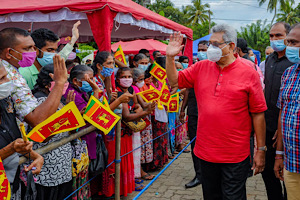Sri Lanka: Debate on Holding Elections During a Health Crisis
Chulanee Attanayake and Roshni Kapur
26 July 2020Summary
The impact of COVID-19 outbreak on economic and social life is visible globally. In some countries, it has disrupted the democratic and political processes as well. In Sri Lanka, the parliamentary elections, which were first scheduled to be held on 25 April 2020, were postponed for the second time due to the rising number of COVID-19 positive cases. The Election Commission announced in June 2020 that the eagerly-awaited general elections will finally be held on 5 August 2020. Moreover, the indefinite end to the health crisis and constant delay sparked a new political debate in the country that is reminiscent of the 2018 political crisis when then-President Maithripala Sirisena unconstitutionally dismissed then-Prime Minister Ranil Wickremesinghe. This time, the government and opposition disagreed over the status of the parliament and whether it was wise for the cabinet to make key decisions without a parliamentary vote. Many sections of the public and civil society also weighed in on the matter. This paper explores the divergent viewpoints that have dominated the country’s political landscape for months and the issues associated with it.
Photo Credit: Gotabaya Rajapaksa/Facebook
-
 More From :
More From :
-
 Tags :
Tags :
-
 Download PDF
Download PDF


